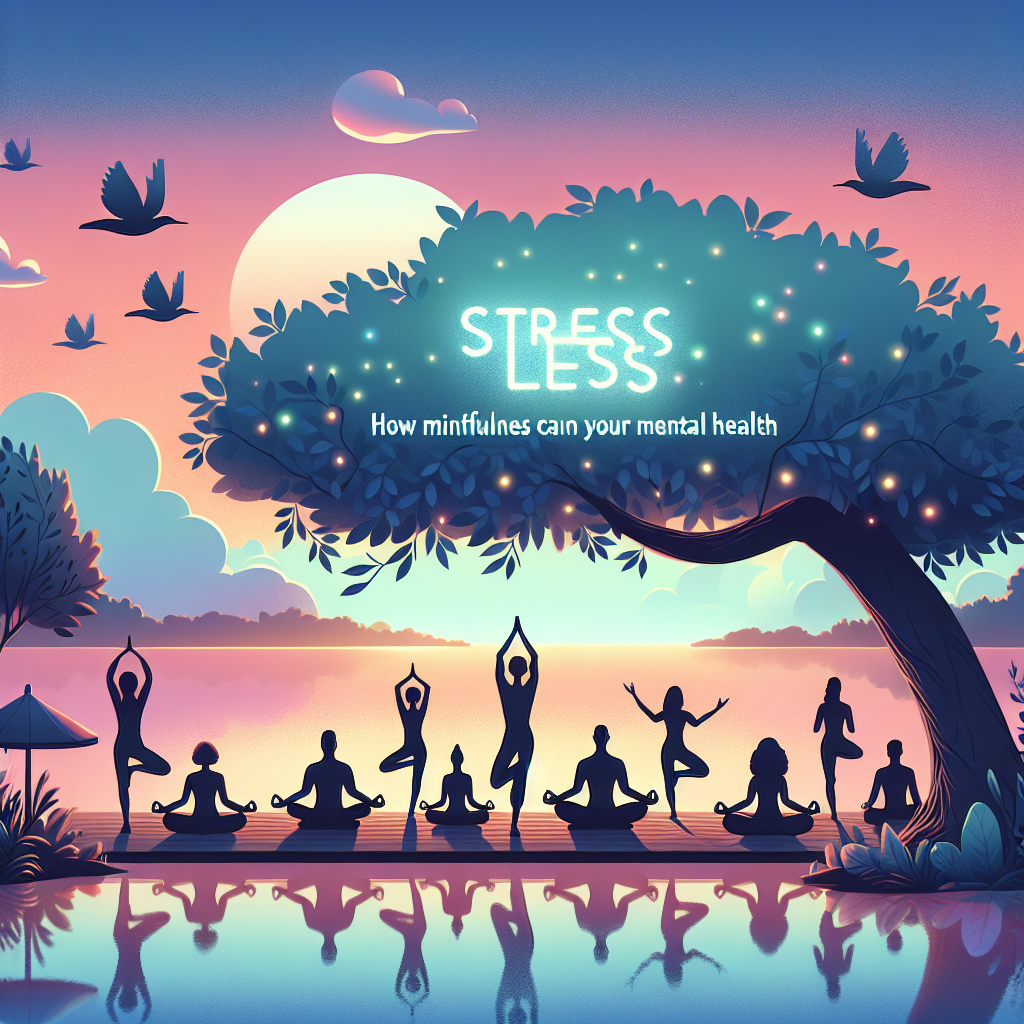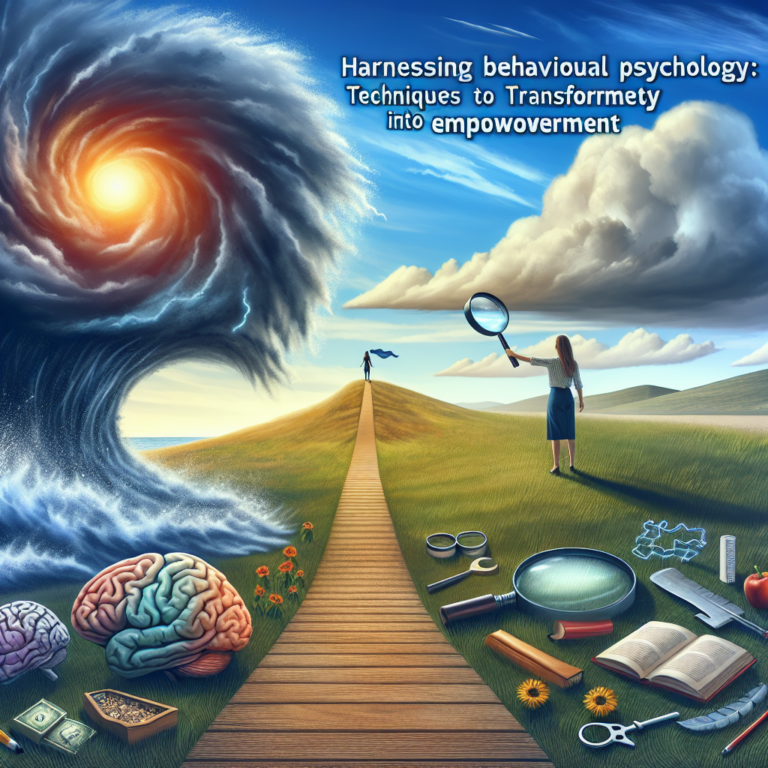
Stress Less: How Mindfulness Can Transform Your Mental Health
Introduction
In our fast-paced world, stress has become an unwelcome companion in our daily lives. From the pressures at work to the hustle of family obligations, the weight of modern living can feel heavy. But what if the key to easing that burden lies within us? Enter mindfulness—a mental practice that allows individuals to cultivate awareness and presence. This article dives deep into the idea of "Stress Less: How Mindfulness Can Transform Your Mental Health." Explore how embracing mindfulness can serve as a powerful antidote to stress and an essential tool for enhancing mental well-being.
Understanding Mindfulness
What is Mindfulness?
Mindfulness can be described as the art of being present, fully engaged with the moment without judgment. It involves cultivating awareness of our thoughts, feelings, and surroundings. This practice has roots in ancient Eastern traditions but has been widely adopted in Western psychology for its profound benefits.
Scientific Basis: How Mindfulness Affects the Brain
Research shows that mindfulness can significantly impact our brain structure and function. Regular mindfulness practice has been linked to enhanced connectivity in the prefrontal cortex, the area responsible for decision-making, emotional regulation, and self-awareness. Moreover, a study conducted by neuroscientists at Harvard found that maintaining a mindfulness practice for eight weeks can lead to increased gray matter density in regions of the brain associated with memory, sense of self, empathy, and stress regulation.
The Stress Response
To address "Stress Less: How Mindfulness Can Transform Your Mental Health," it’s critical to understand the body’s stress response. Stress triggers the release of cortisol, the body’s primary stress hormone. While this response can be beneficial in short bursts, chronic stress can lead to a myriad of health issues, both physical and mental. Mindfulness acts as a buffer against the harmful effects of this stress response, allowing individuals to cultivate a state of calm and resilience.
The Connection Between Mindfulness and Mental Health
Research illustrates a strong correlation between mindfulness practices and improved mental health outcomes. From reducing symptoms of anxiety and depression to promoting emotional regulation, mindfulness serves as a versatile tool for enhancing well-being.
Case Studies that Illustrate Mindfulness in Action
Case Study 1: Corporate Mindfulness Programs
A prominent tech company launched a mindfulness program for its employees aimed at reducing stress and improving productivity. Over six months, participants practiced meditation and engaged in mindfulness exercises during breaks. The outcome showed a 30% decrease in reported stress levels and a 25% increase in employee productivity. This highlights the potential of "Stress Less: How Mindfulness Can Transform Your Mental Health" in organizational settings.
Case Study 2: Mindfulness and Anxiety Management
A randomized clinical trial explored the impact of mindfulness-based cognitive therapy (MBCT) on adults suffering from anxiety disorders. Among participants who underwent an eight-week MBCT program, a staggering 60% reported significant reductions in anxiety, with many experiencing lasting effects several months after completing the program. This case underscores the transformative power of mindfulness techniques.
Practical Applications of Mindfulness
Incorporating mindfulness into daily life doesn’t require a total lifestyle overhaul. Below are simple strategies to help you "Stress Less: How Mindfulness Can Transform Your Mental Health":
Mindful Breathing: Taking a few minutes each day to focus on your breath can create a centered and calm state. Inhale deeply for six counts, hold for two, and exhale slowly for six. Repeat several times.
Body Scan: A body scan meditation helps increase awareness of physical sensations, thus inducing relaxation and reducing tension.
Gratitude Journaling: Maintain a journal to note down things you are thankful for. This simple act shifts focus from stressors to positive aspects of life.
- Mindful Walking: Engage in walking meditation by paying attention to each step you take. Notice the sensations in your feet and the rhythm of your breath.
Tools and Resources for Mindfulness Practice
Numerous apps and online resources support mindfulness practice:
| Application | Description |
|---|---|
| Headspace | Guided meditations tailored to varying levels and issues, including stress relief. |
| Calm | Incorporates a library of sleep stories, breathing exercises, and calming music that promotes relaxation. |
| Insight Timer | Free guided meditations from mindfulness experts around the globe, along with community connections. |
Mindfulness and Chronic Stress Management
Chronic stress has become a silent epidemic, affecting millions worldwide. Mindfulness practices provide a systematic approach to managing and mitigating stress, transforming how we respond to life’s challenges.
How Mindfulness Reduces Stress
Research supports that mindfulness decreases cortisol levels, helping to alleviate the physical symptoms of stress. It enhances emotional regulation by allowing individuals to observe their thoughts without becoming attached to or overwhelmed by them. This detachment can significantly diminish stress levels.
Mindfulness in Daily Scenarios
Imagine facing a looming work deadline. Instead of succumbing to panic, mindfulness empowers you to recognize those anxious thoughts, observe them without judgment, and refocus on completing your tasks one step at a time. This shift in perspective exemplifies how simply being mindful can transform a stressful situation into a manageable one.
Conclusion
Mindfulness is more than just a trend—it’s a powerful approach to "Stress Less: How Mindfulness Can Transform Your Mental Health." Through cultivating awareness and presence, mindfulness enables individuals to reclaim control over their mental health, reducing anxiety and promoting emotional resilience. By incorporating mindfulness practices into daily routines, anyone can build a robust toolkit for mental wellness.
Actionable Takeaways
Start Small: Integrate mindfulness practices incrementally into your routine. Begin with short sessions and gradually increase their duration as you become more comfortable.
Be Consistent: Consistency is key. Aim to practice mindfulness daily, whether through breathing exercises, meditation, or mindful walking.
Join a Community: Engage with like-minded individuals through online forums, local meditation groups, or workshops designed to bolster your practice.
- Reflect and Adjust: Regularly reflect on your mindfulness journey, noting what works best for you and adapting strategies as needed to fit your lifestyle.
FAQs
1. What is the best way to start practicing mindfulness?
Start with brief sessions—just 5-10 minutes of focused breathing or guided meditation each day. Gradually increase your practice duration as you feel more comfortable.
2. Can mindfulness help with anxiety?
Yes, numerous studies have shown that mindfulness can significantly reduce symptoms of anxiety by fostering a better understanding of thoughts and feelings.
3. How long does it take to see results from mindfulness practice?
While some individuals may notice changes immediately, research suggests that several weeks of consistent practice can lead to significant improvements in mental health.
4. Do I need a quiet place to practice mindfulness?
While a quiet environment can help, mindfulness can be practiced anywhere. The key is focusing your awareness, whether in a bustling coffee shop or during a commute.
5. What if I find it difficult to focus during mindfulness practice?
It’s completely normal for the mind to wander. Instead of getting frustrated, gently redirect your focus back to your breath or the present moment.
By taking small, consistent steps toward mindfulness, you, too, can tap into its transformative potential and significantly improve your mental health. Embrace the journey and inspire others to join you along the way.

















